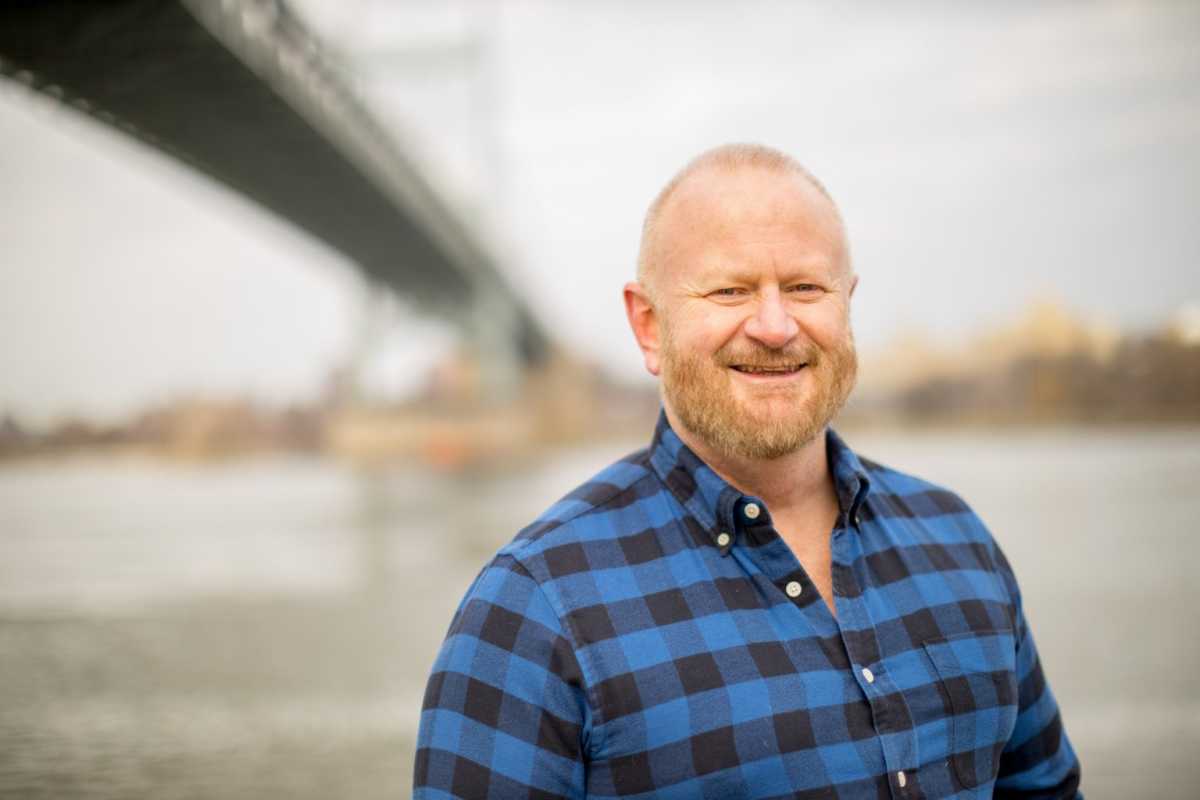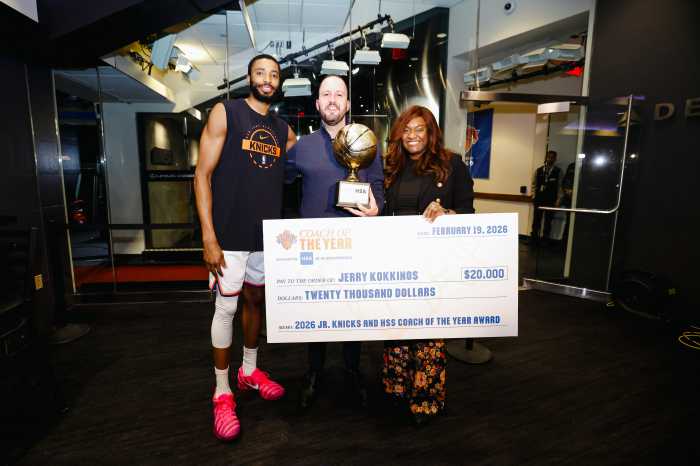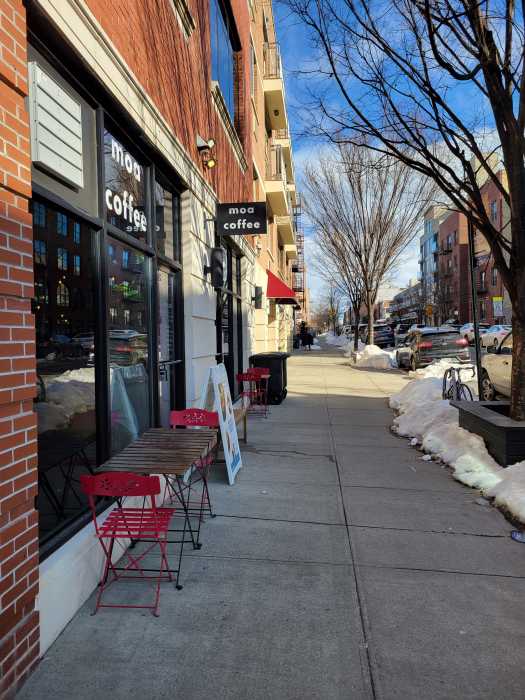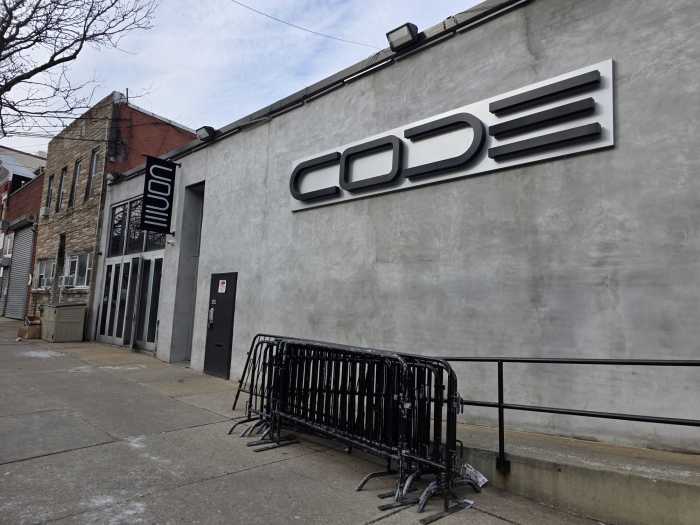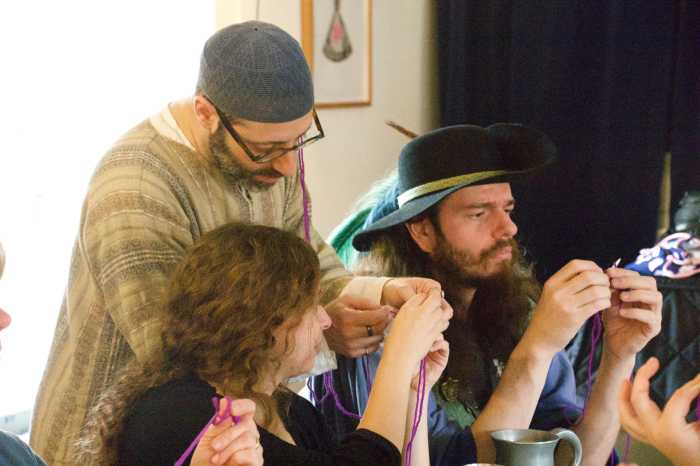BY MATT TRACY
Rod Townsend, who most recently served as president of the Stonewall Democratic Club of New York City, is running for the City Council in Queens, he told Gay City News in an exclusive interview this week.
Townsend is eying the seat occupied by term-limited Councilman Costa Constantinides in the 22nd District, which encompasses Astoria, East Elmhurst, Jackson Heights, and Woodside, along with Rikers Island. The seat could open up quickly if Constantinides wins the special election race for Queens borough president on March 24, but it would otherwise be more than a year until the Democratic primary election for that seat takes place in June of 2021.
No matter which timeline plays out, Townsend said he’s up to the task — and his candidacy as an out gay man represents a key test for the citywide effort to maintain queer voices on a City Council that will see all five out gay members leave office at the end of 2021 due to term limits.
Having led Stonewall since 2018, Townsend was in the thick of the city’s political action at a time of significant movement on LGBTQ issues locally, including the enactment of state laws like the Gender Expression Non-Discrimination Act (GENDA) and the ban on conversion therapy on minors as well as the emerging campaign to decriminalize sex work. He concluded his tenure with Stonewall on Feb. 26 when the club elected a new president, Brian Romero.
But Townsend’s qualifications extend beyond his involvement in the city’s queer political scene. He is also a member of Astoria’s Community Board 1, for which he serves as co-chair of the Community and Economic Development Committee.
Townsend said he never anticipated running for office and admits he doesn’t “look like the typical candidate.” He grew up far from the bright lights and hustle bustle of New York City, in Evansville, Indiana, a city on the edge of the Ohio River perched between Louisville, Kentucky and St. Louis, Missouri. He was raised in a working class household by a mother who was a cashier and a father who was a security guard, and he was the first in his family to attend college, let alone graduate. He spends his days working in a woodshop as a production manager in the home furnishing business, and the closest connection that job has had to politics was when Townsend was involved in a project to build furniture for the Oval Office during Barack Obama’s presidency.
But his involvement in local politics during his free time — he conceded that it had become a “time-consuming hobby” — has seemingly impressed those around him. The first sign that a run would be possible, he said, came from his neighbors and others in the city who encouraged him to elevate his political sights to the next level.
“It’s not like a movie where there was a dramatic moment when I decided to run,” Townsend said. “The people on my block, the people in my community, and people across the city have been saying it. I had to convince myself after hearing them.”
Townsend moved to the city 25 years ago at a time when he says that housing affordability was not the crisis it is today. He asserted he will run a campaign focused on the kinds of issues facing everyday people — and he invoked his own lived experiences in describing that approach.
“I don’t think someone in the same situation that I was 25 years ago could find a home in Astoria today,” he said. “If they can, it’s not easily done. I want Astoria to still be that place where people from all over can move, whether it’s a gay kid from the Lower East Side or an immigrant from across the world. Keeping our neighborhood — and our city — so we can continue to thrive is crucial.”

Townsend hopes to place an emphasis on fixing infrastructure, addressing housing affordability issues, bolstering small businesses, and using his voice and role as a lawmaker to elevate unsettled queer goals. He is rejecting donations from corporate PACs, large real estate developers, and landlords with more than five units of housing. He will participate in the city’s matching funds donation system and will limit donations from those who do business with the city to $250.
Townsend was a part of the community board that voted against the plan to establish borough-based jails as part of the push to close Rikers Island — a particularly relevant point considering this race is in the district that includes Rikers. The city’s plan drew loud criticism from advocates such as those involved with the No New Jails NYC coalition, which blasted the city for committing to building even more jails at a time when there has been an emphasis on reducing incarceration.
The No New Jails coalition “is right,” Townsend said, “in that we need to be putting the resources” toward decarceration.
He added, “When you look at how much money we spend on our failed jail system compared to others who are being innovative with incarceration, we should be putting our money toward the future.”
Townsend was not afraid to use his role as president of Stonewall to keep elected officials in check when they stepped out of bounds — especially when it came to LGBTQ issues. When Gay City News reported that former City Council Speaker Melissa Mark-Viverito and then-Councilmember Jumaane Williams, now the public advocate, misled voters in Stonewall candidate questionnaires by falsely saying they never donated to or endorsed homophobic lawmakers, Townsend used strong language to condemn those politicians. Another example of that was evident when Townsend said out lesbian Assemblymember Deborah Glick “betrayed” the club by backing away from a pledge to support a compensated gestational surrogacy bill that died last year.
Townsend dug deeper into his personal history as he vowed to be an advocate in City Hall for important LGBTQ issues — including questions that would be handled by state lawmakers, such as the related movements to repeal the “Walking While Trans” ban — a loitering measure that has been employed to target transgender women and sex workers — and to fully decriminalize sex work.
“When I first came to New York City and I was involved and going out, the first friends I really made were trans women, mostly trans women of color,” he said. “I got to know sex workers, and to me that was just their job. I definitely want to put resources behind that and that will never cease to be important to me.”
He continued, “I grew up in the ‘80s and I came out late because I grew up in an environment where AIDS loomed large over your life. The president of the US wouldn’t mention an epidemic that was killing thousands of people. I spent a lot of time at the Beth Israel HIV ward back in the day. I’ve seen what happens when government turns a blind eye to our people.”
There are also areas where Townsend could have an even more direct impact on queer issues. There will, for example, be a need for lawmakers who will focus on LGBTQ education initiatives in light of the impending departure of term-limited out gay Councilman Daniel Dromm, a former Queens school teacher who helped usher in the city Department of Education’s first LGBTQ liaison and continues to push for an LGBTQ-related question on the New York State Regents exams. When asked, Townsend committed to carrying those issues forward if elected and pointed to his past efforts in making sure to include LGBTQ education-related questions on Stonewall’s candidate questionnaires.
The race, which would be a nonpartisan special election if Constantinides gets elected borough president, is shaping up to be a crowded affair. Those who have filed include Constantinides’ chief of staff, Nick Roloson, attorney Andy Aujla, Sunnyside Shines Business Improvement District executive director Jaime-Faye Bean, youth organizer Jesse A. Cerrotti, and Republican Felicia Kalan — who also grew up in Indiana and attended the University of Evansville.
Townsend welcomes the competition.
“The more the merrier,” he said. “I’ve been working for years now to encourage people to run for office. I’m not willing to go back on that now because I’m a candidate. It brings out more ideas, more personalities, and more of the neighborhood.”
This story first appeared on gaycitynews.com.

